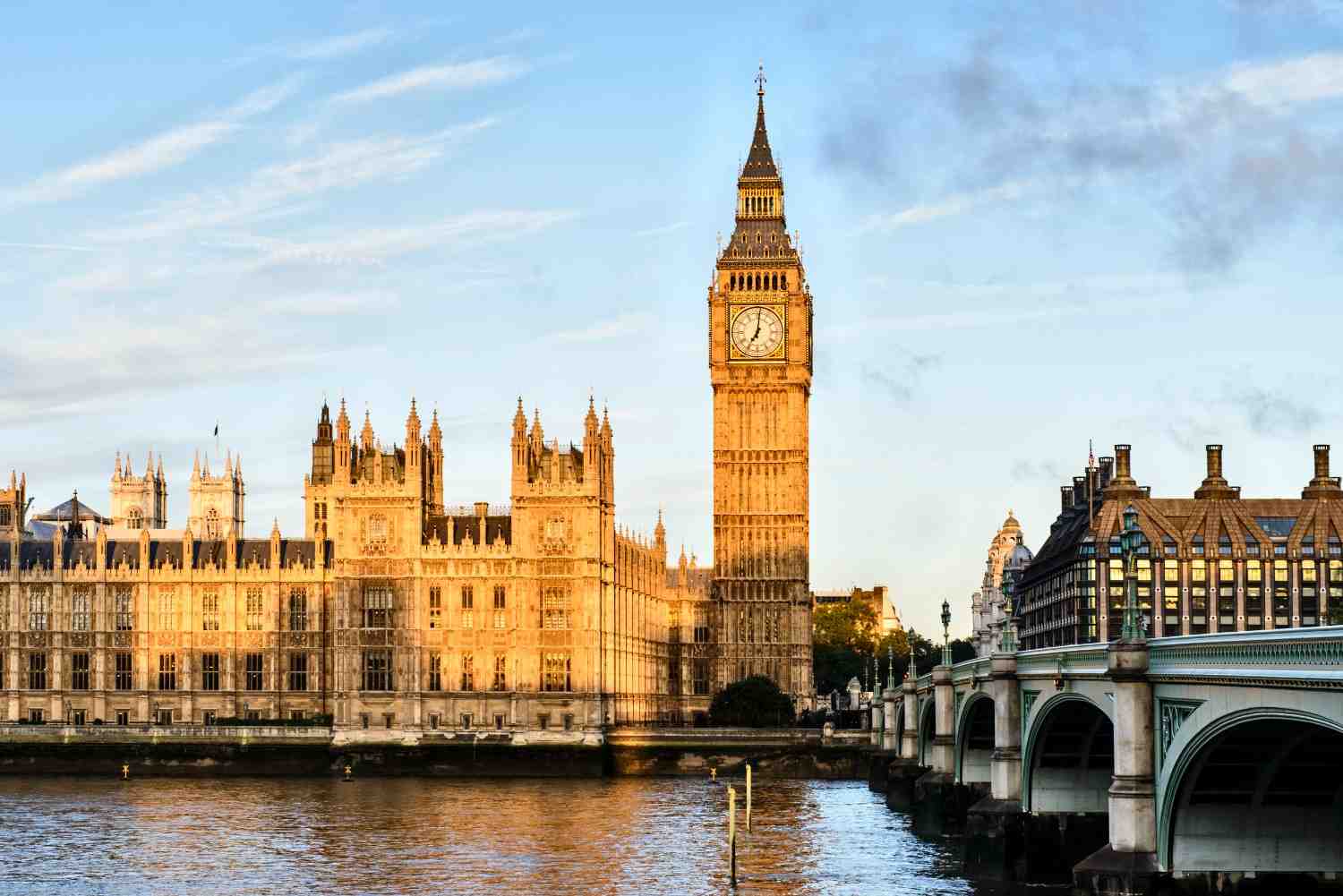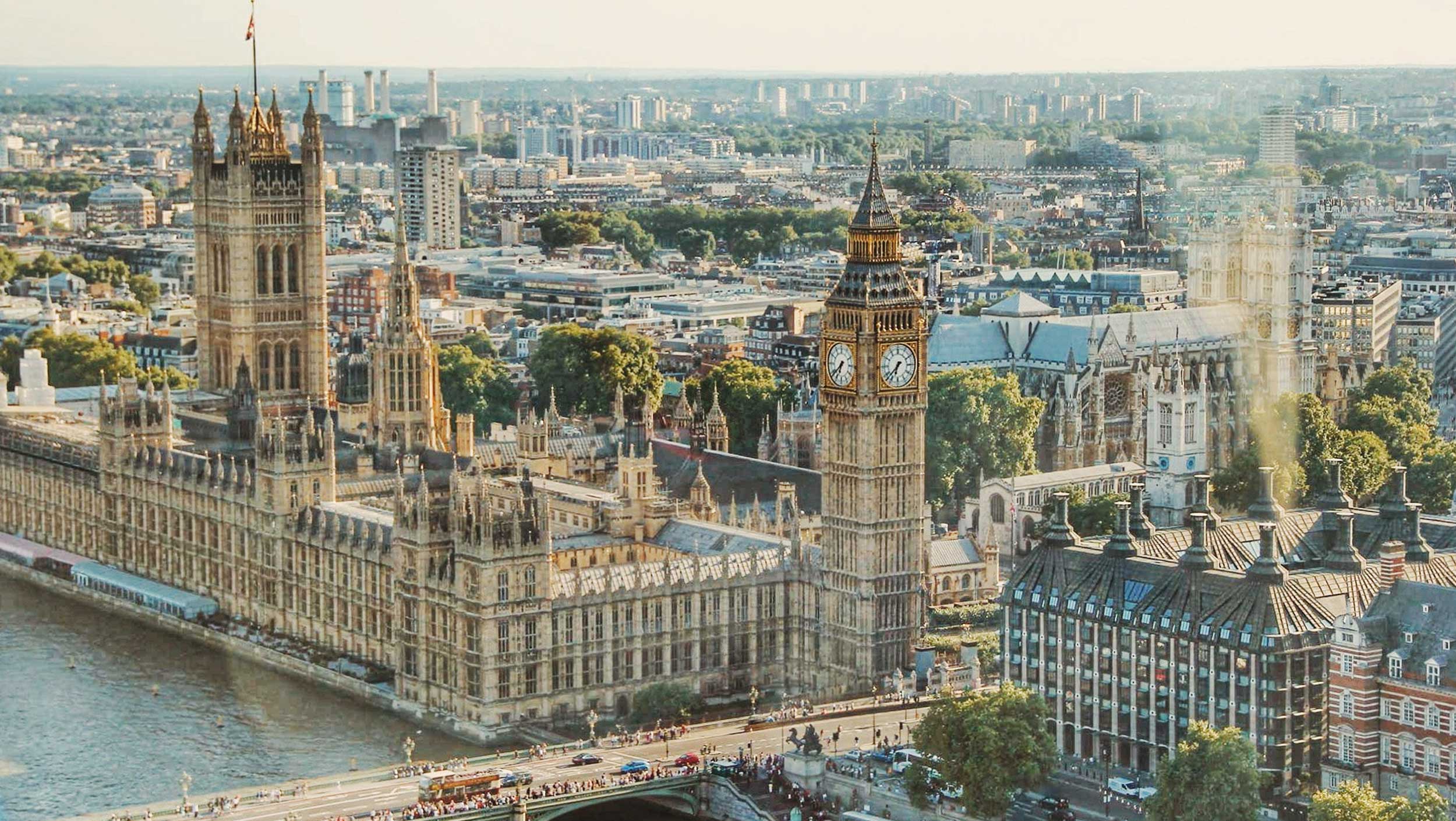Incorporate A Company In United Kingdom In 2025

The United Kingdom (UK), an island nation comprising England, Scotland, Wales, and Northern Ireland, is one of the world’s most influential countries. Known for its rich history, cultural diversity, and global economic significance, the UK is a hub of innovation and opportunity. The capital city, London, is a global financial and cultural center, attracting millions of tourists, students, and professionals each year. With its robust infrastructure, renowned educational institutions, and thriving industries, the UK is an attractive destination for individuals and businesses alike.
Standard of Living in the United Kingdom
The United Kingdom offers a high standard of living, characterized by access to quality healthcare, world-class education, and modern amenities.
- Healthcare:
The National Health Service (NHS) provides free healthcare at the point of use for residents, funded through taxation. This ensures that everyone has access to essential medical services. - Education:
The UK is home to prestigious universities such as Oxford, Cambridge, and Imperial College London. Public and private schooling options cater to a diverse population. - Housing and Transportation:
Housing costs vary by region, with London and the South East being more expensive. The public transportation system, including the Tube, trains, and buses, is extensive and efficient. - Cultural and Social Life:
The United Kingdom boasts vibrant cultural activities, from historic landmarks to music festivals. Its multicultural society offers a wide range of cuisines, traditions, and events.
Despite the high quality of life, the cost of living in major cities can be expensive, with housing, transportation, and dining contributing significantly to monthly expenses.

Personal Taxes in the United Kingdom
The UK has a progressive taxation system, with income tax rates increasing based on earnings.
- Income Tax Rates:
- Personal Allowance: The first £12,570 of income is tax-free for most individuals.
- Basic Rate: Income between £12,571 and £50,270 is taxed at 20%.
- Higher Rate: Income between £50,271 and £125,140 is taxed at 40%.
- Additional Rate: Income above £125,140 is taxed at 45%.
- National Insurance Contributions (NICs):
Employees and self-employed individuals contribute to NICs, which fund healthcare, pensions, and unemployment benefits. Rates vary based on income levels and employment status. - Capital Gains Tax:
Profits from selling assets like property or investments are taxed, with rates ranging from 10% to 28%, depending on the asset type and income level.
Corporate Taxes in the United Kingdom
The United Kingdom is known for its competitive corporate tax regime, encouraging investment and business growth.
- Corporation Tax:
The standard corporate tax rate is 25% as of April 2023. However, smaller companies with profits up to £50,000 benefit from a reduced rate of 19%. - R&D Tax Credits:
Companies engaging in research and development can claim tax credits or cash payments to offset expenses, fostering innovation. - VAT (Value-Added Tax):
The VAT rate is 20%, with reduced rates of 5% for certain goods and services and exemptions for essentials like food and children’s clothing. - International Business Appeal:
The UK’s extensive network of double taxation treaties and ease of establishing a business make it an attractive destination for global corporations.
Major Industries in the United Kingdom
The UK has a highly diversified economy, with several key sectors contributing significantly to its GDP:
- Financial Services:
London is one of the world’s financial capitals, hosting leading banks, insurance companies, and investment firms. The financial services sector contributes around 7% of the UK’s GDP. - Technology and Innovation:
The UK is at the forefront of technological advancements, with thriving industries in fintech, artificial intelligence, cybersecurity, and e-commerce. The country also hosts numerous startups and tech incubators. - Healthcare and Pharmaceuticals:
Home to major pharmaceutical companies like GlaxoSmithKline and AstraZeneca, the UK is a leader in drug development and healthcare innovation. - Manufacturing and Automotive:
Advanced manufacturing, particularly in aerospace and automotive industries, plays a significant role in exports. Jaguar Land Rover and Rolls-Royce are iconic UK-based brands. - Creative Industries:
The UK’s film, music, and gaming sectors are globally recognised. British films and television productions are particularly popular, with studios like Pinewood and Elstree playing key roles. - Energy and Renewables:
With its commitment to net-zero emissions, the United Kingdom has seen significant investments in wind and solar energy projects, alongside a continued focus on oil and gas production. - Tourism:
Tourism remains a vital industry, with millions visiting landmarks like Buckingham Palace, Stonehenge, and the Scottish Highlands each year.

Inflation and Cost of Living in the United Kingdom
- Inflation Trends:
Inflation in the UK has seen fluctuations in recent years, influenced by global supply chain issues, Brexit-related adjustments, and energy price hikes. The Bank of England closely monitors inflation and adjusts interest rates to maintain economic stability. - Cost of Living:
The UK has a relatively high cost of living compared to many countries. Major expenses include:- Housing: Rental and property prices vary widely. London and the South East are particularly expensive, while Northern England and Scotland offer more affordable options.
- Utilities: Average monthly bills for electricity, water, and gas range from £150 to £200 for a household.
- Food and Dining: Groceries are moderately priced, but dining out can be costly, with a meal at a mid-range restaurant costing around £20–£30 per person.
- Transportation: Public transport is efficient but expensive, particularly in London, where commuting costs can exceed £150 per month.
Property Tax, Services Tax, and Sales Tax in the United Kingdom
The United Kingdom has a robust taxation system designed to fund public services and infrastructure.
- Property Tax (Council Tax):
- Council tax is levied on residential properties, calculated based on property value and location. Rates vary between £1,200 and £3,000 annually.
- Stamp Duty Land Tax applies to property purchases, with rates starting at 0% for properties below £250,000 and increasing for higher-priced homes.
- Value-Added Tax (VAT):
- The standard VAT rate is 20%, applied to most goods and services.
- Reduced rates of 5% apply to specific items, such as energy-saving materials, while some essentials like food and children’s clothing are exempt.
- Other Taxes:
- Business Rates: Charged on commercial properties based on their rateable value.
- Capital Gains Tax: Levied on profits from the sale of assets, with rates ranging from 10% to 28%.
Types of Business Entities in the United Kingdom
Entrepreneurs have various options for establishing a business in the UK:
- Sole Trader:
Simple and easy to set up, a sole trader structure is suitable for individuals running small businesses. Owners are personally liable for debts. - Partnership:
Partnerships allow two or more individuals to share profits, responsibilities, and liabilities. Limited Liability Partnerships (LLPs) offer additional legal protection. - Private Limited Company (Ltd):
A common choice, Ltd companies separate personal and business finances. They require registration with Companies House and have limited liability for owners. - Public Limited Company (PLC):
Suitable for larger businesses, PLCs can sell shares to the public and are subject to stricter regulations. - Branch Office or Subsidiary:
Foreign companies can establish a branch or subsidiary in the UK, benefiting from its business-friendly environment.
Licenses to Start a Business in the United Kingdom
Certain industries require specific licenses to operate legally in the UK:
- Food and Beverage:
Businesses handling food must obtain a food hygiene certificate and register with the local authority. Alcohol sales require a premises license and a personal license. - Healthcare:
Healthcare providers and pharmacies need approvals from regulatory bodies such as the Care Quality Commission (CQC). - Construction:
Construction companies must comply with health and safety standards and secure necessary permits for building projects. - Specialized Services:
Professions such as financial advisory, legal services, and childcare require sector-specific licenses. - General Requirements:
- Registering with Companies House.
- Obtaining a VAT number if applicable.
- Complying with health and safety standards.
Opportunities for Expats for Business Growth in the United Kingdom
The UK offers numerous opportunities for expats to start and grow businesses:
- Access to Markets:
Expats benefit from the UK’s strong trade ties, free trade agreements, and proximity to the European Union, even post-Brexit. - Supportive Ecosystem:
Initiatives like Innovate UK and government grants provide financial and advisory support to entrepreneurs. - Sector-Specific Growth:
Expats can explore opportunities in growing sectors such as renewable energy, IT, and creative industries. - Networking Opportunities:
Business hubs like London, Manchester, and Birmingham offer access to professional networks, coworking spaces, and mentorship programs.
Citizenship for Expats in the United Kingdom
Expats can pursue UK citizenship through various pathways:
- Residency and Naturalization:
Expats must reside in the UK for at least five years (or three years if married to a UK citizen) before applying for permanent residency. After holding permanent residency for one year, they can apply for citizenship. - Investment-Based Citizenship:
The Tier 1 Investor Visa allows individuals investing at least £2 million in the UK to qualify for permanent residency after five years. - Skilled Worker Route:
Expats working in the UK on a Skilled Worker Visa can transition to permanent residency and eventually citizenship after meeting the eligibility criteria. - Dual Citizenship:
The UK allows dual citizenship, enabling expats to retain their original nationality while becoming British citizens.
Why Register a Company in the United Kingdom
- Ease of Doing Business:
The UK consistently ranks high on global indices for ease of doing business. With straightforward regulatory requirements and digital processes, setting up a business is both quick and efficient. - Tax Advantages:
The corporate tax rate in the UK is competitive, encouraging entrepreneurship and foreign investment. Additionally, tax relief schemes such as R&D credits and investment allowances reduce the financial burden for businesses. - Access to Global Markets:
The UK serves as a gateway to international markets. Its strategic location and trade agreements provide businesses with access to Europe, Asia, and the Americas. - Robust Legal Framework:
A transparent legal system protects the rights of business owners and ensures compliance. The Companies Act 2006 governs company law, providing a clear framework for businesses. - Prestige and Credibility:
Operating a company in the UK enhances your business’s reputation, providing trust and legitimacy with global clients, investors, and partners.
How to Register a Company in the United Kingdom
- Choose a Business Structure:
The most common business structures in the UK include:- Sole Trader: Suitable for small businesses or freelancers.
- Private Limited Company (Ltd): Offers limited liability protection and is ideal for startups.
- Partnerships: A flexible option for businesses with multiple owners.
- Select a Company Name:
The name must be unique and adhere to the UK’s naming rules, avoiding offensive language or restricted terms. - Register with Companies House:
Registration can be done online, by post, or through an agent. Required information includes:- The company’s name and address.
- Details of directors and shareholders.
- The Standard Industrial Classification (SIC) code for your business activity.
- Memorandum and Articles of Association.
- Obtain a Unique Taxpayer Reference (UTR):
After registration, HMRC will issue a UTR for tax purposes. - Open a Business Bank Account:
Set up a dedicated bank account to manage your company’s finances. - VAT Registration:
If your business’s turnover exceeds £85,000 annually, you must register for Value-Added Tax (VAT).
Cost to Register a Business in the United Kingdom
The costs associated with registering a company in the UK are relatively affordable:
- Standard Registration Fee:
- Online Registration: £12 (processed within 24 hours).
- Postal Registration: £40 (takes up to 10 days).
- Same-Day Registration: £100 for expedited service.
- Additional Costs:
- Professional Services: Hiring an accountant or legal consultant to assist with the process may cost between £100 and £500.
- Trademark Registration: If you wish to trademark your company name, this costs £170 for the first class and £50 for each additional class.
- Bank Account Fees: Some banks may charge setup or monthly maintenance fees.
- Ongoing Compliance Costs:
Businesses must file annual accounts and a Confirmation Statement, with fees starting at £13 for online submissions.
Relation with Other Countries of the United Kingdom
The UK maintains strong diplomatic and trade relationships worldwide, despite challenges like Brexit.
- Global Trade Partnerships:
- European Union (EU): Although the UK is no longer part of the EU, the Trade and Cooperation Agreement ensures continued trade with minimal tariffs.
- United States: The UK is a key trading partner of the US, with robust trade in goods, services, and technology.
- Commonwealth Nations: Strong ties with Commonwealth countries like India, Australia, and Canada provide additional business opportunities.
- Free Trade Agreements (FTAs):
The United Kingdom has signed FTAs with several countries, including Japan, Australia, and New Zealand, facilitating smoother international trade. - Global Influence:
As a permanent member of the United Nations Security Council and an active participant in G7 and G20 summits, the UK wields significant geopolitical influence, fostering international business confidence.
Any Other Taxes in the United Kingdom
In addition to corporate and personal income taxes, businesses in the UK may encounter the following:
- Value-Added Tax (VAT):
- Standard Rate: 20%.
- Reduced Rate: 5% (e.g., for home energy).
- Exemptions: Items like basic food and children’s clothing.
- Business Rates:
Applied to non-residential properties, rates vary based on the property’s rateable value. - Stamp Duty Land Tax (SDLT):
Levied on the purchase of property or land. Rates depend on the value of the property and its usage. - National Insurance Contributions (NICs):
Employers and employees must contribute to NICs, funding healthcare and social security. - Capital Gains Tax (CGT):
Profits from selling assets like property or shares are taxed at rates ranging from 10% to 28%, depending on the asset type and the taxpayer’s income level. - Customs and Excise Duties:
These taxes apply to imported and exported goods, with rates varying based on product type.
Social Security in the United Kingdom
The United Kingdom has a comprehensive social security system designed to ensure the welfare of its residents.
- Healthcare:
The National Health Service (NHS) provides free healthcare at the point of use to all residents, funded through taxation. This universal healthcare system ensures access to essential medical services without financial barriers. - State Pension:
The government offers a state pension to retirees, calculated based on their National Insurance contributions during their working life. - Unemployment and Disability Benefits:
The UK provides financial support to individuals who are unemployed, unable to work due to disabilities, or on low income. Programs like Universal Credit help individuals meet their basic needs. - Child and Family Benefits:
Families receive child benefits and tax credits to support the upbringing of children, ensuring access to education and healthcare.
Weather, Climate, and Regional Safety in the United Kingdom
- Weather and Climate:
The UK has a temperate maritime climate characterized by mild winters and cool summers, with significant regional variations:- England: Generally warmer with moderate rainfall.
- Scotland: Cooler with more frequent rain, especially in the Highlands.
- Wales: Known for its lush greenery and wetter conditions.
- Northern Ireland: Experiences a mix of mild temperatures and moderate rainfall.
The weather can be unpredictable, but it rarely reaches extreme temperatures, making it comfortable for residents year-round.
- Regional Safety and Security:
The United Kingdom is considered a safe country with low levels of violent crime. Its law enforcement agencies, including local police forces and specialized units, maintain public safety. Advanced surveillance systems, community policing, and active public participation contribute to a secure living environment. While petty crimes like pickpocketing occur in urban areas, overall safety remains high.
Passport Power of the United Kingdom
The UK passport is among the most powerful in the world, offering extensive global mobility:
- Visa-Free Travel:
UK passport holders enjoy visa-free or visa-on-arrival access to over 180 countries, including the European Union, the United States (under the Visa Waiver Program), and many Commonwealth nations. - Global Influence:
The UK’s strong diplomatic ties ensure that its citizens are welcomed in most countries, and the passport is considered a symbol of stability and privilege.
Scope of Education and Growth in the United Kingdom
- Education System:
The United Kingdom boasts one of the best education systems globally, offering world-renowned institutions and diverse opportunities:- Primary and Secondary Education: Education is free and compulsory for children aged 5 to 18, with public schools providing high-quality education. Private and international schools cater to diverse educational preferences.
- Higher Education: Universities such as Oxford, Cambridge, and Imperial College London are globally acclaimed for their academic excellence and research opportunities. Students from around the world seek to study in the UK due to its robust academic infrastructure.
- Growth Opportunities:
- Economic Stability: The UK’s diverse economy provides ample job opportunities across industries like finance, technology, healthcare, and creative arts.
- Entrepreneurial Ecosystem: The government supports startups through initiatives like Innovate UK and tax incentives, encouraging innovation and entrepreneurship.
- Cultural Exposure: With a multicultural society and global outlook, the UK fosters personal growth and broadens perspectives.
- Quality of Life:
The United Kingdom offers a high quality of life, supported by modern infrastructure, access to healthcare, and vibrant cultural activities. Its cities are equipped with public transport systems, parks, and recreational facilities, making it a well-rounded place to live.








